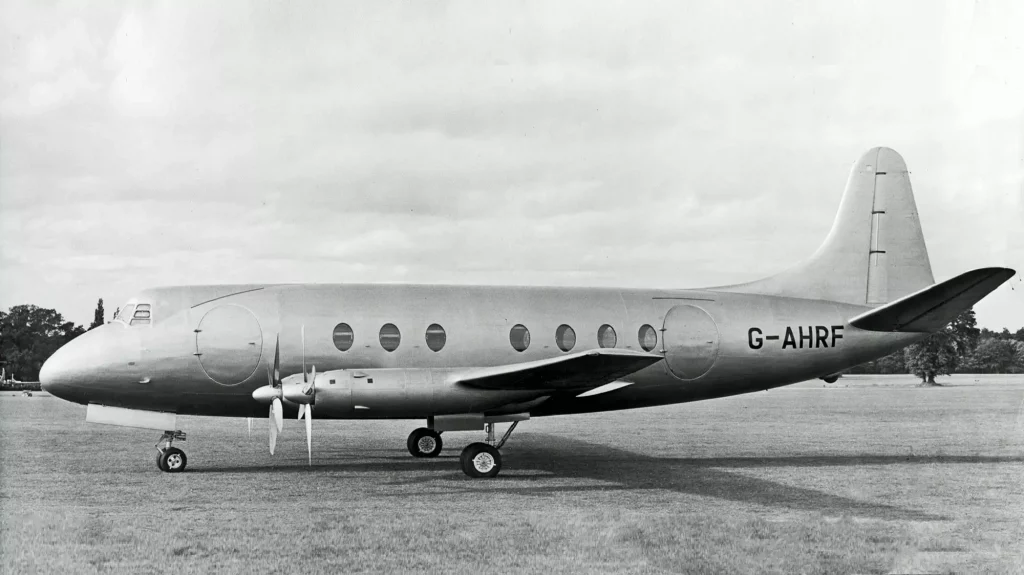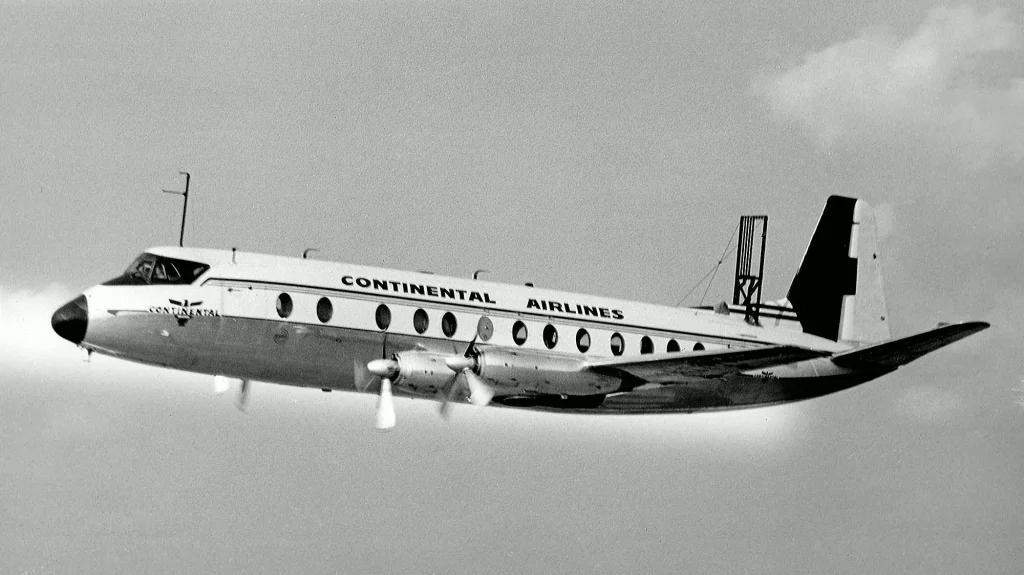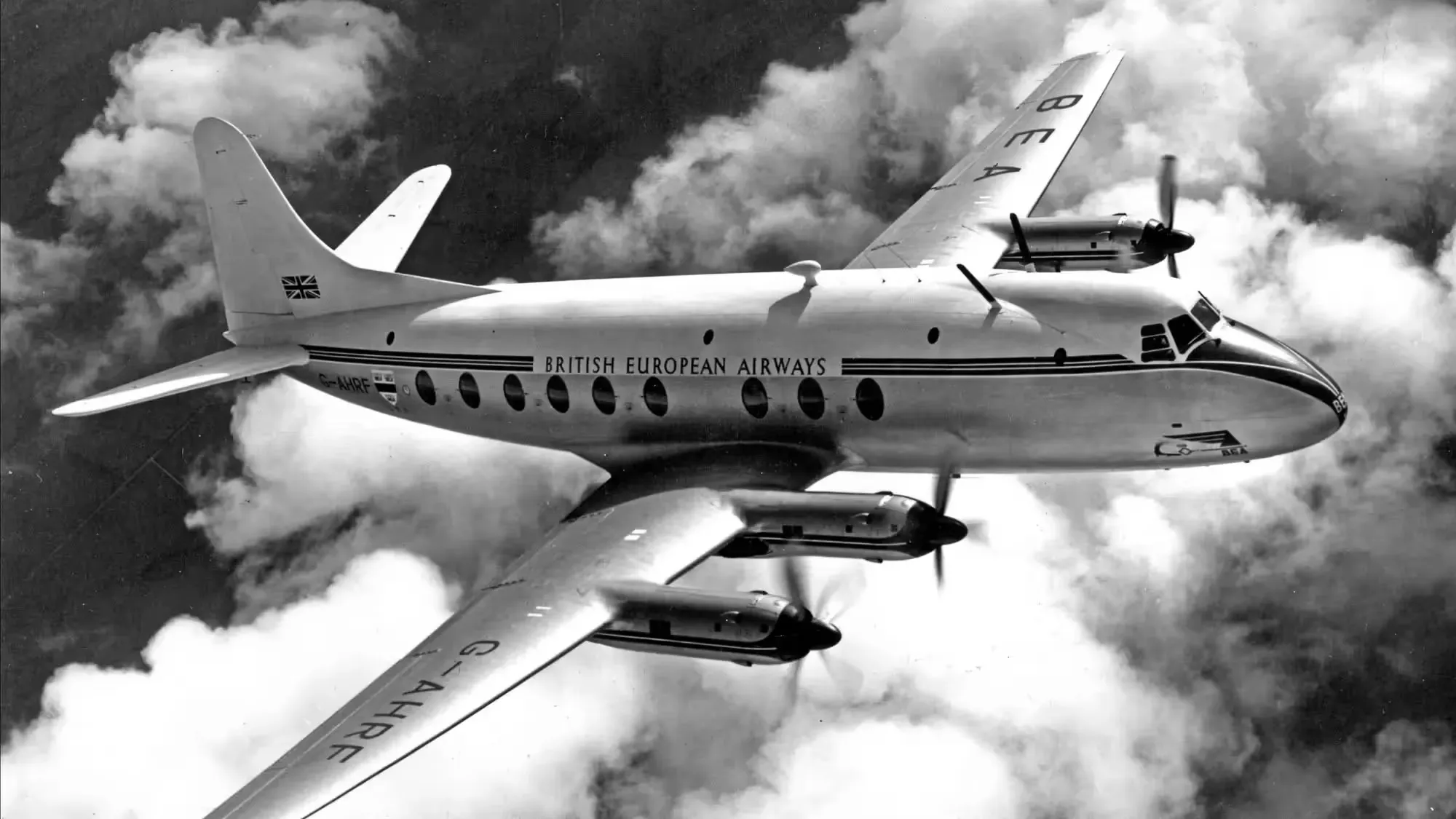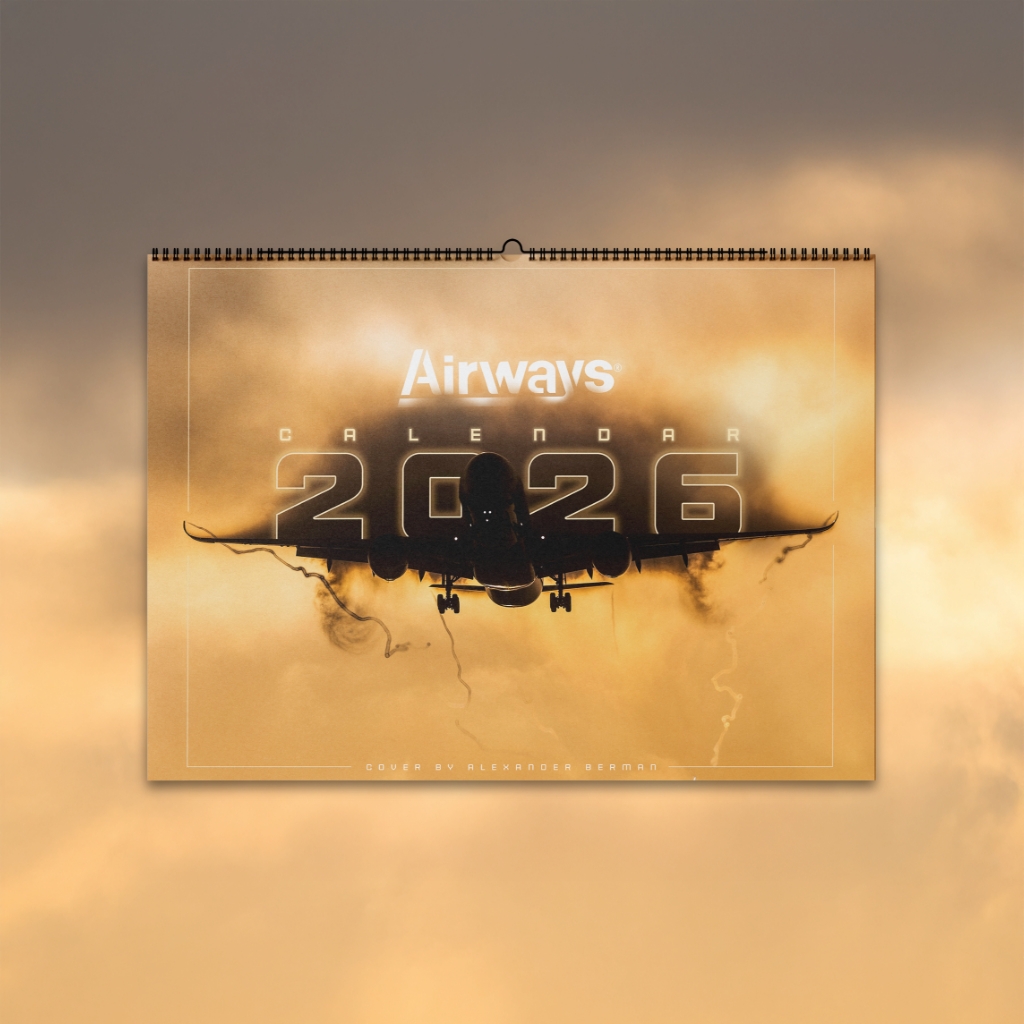DALLAS — Today in 1948, the first Vickers Viscount aircraft took to the skies from Wisley, Surrey, for its maiden flight.
The Viscount was built as a response to the UK's Brabazon committee. This was set up to investigate the future needs of the civilian aircraft market for the British Empire following World War Two.
The prototype, G-AHRF, took to the skies from the grass airstrip at Wisley, Surrey. Piloted by Chief Test Pilot Joseph "Mutt" Summers, the initial model was considered too small and too slow to meet the demands of British European Airways (BEA), which had recently ordered 20 of the rival Airspeed Ambassador.
The aircraft gained full certification on July 27, 1950. It was then used for crew familiarisation flights with BEA. However, the carrier's lack of enthusiasm for the type led Vickers to redesign the Viscount.

A Worldwide Success
The outcome was the larger Type 700. Powered by four Rolls-Royce Dart engines, it could carry up to 53 passengers. BEA would place an order for 26 examples, entering service on April 18, 1953.
A further stretch designated the Type 800 provided capacity for 57-65 passengers. BEA was once again the launch customer. The airline went on to operate 77 Viscounts over the years.

The world's first turboprop airliner, the Viscount became one of the most successful commercial aircraft to ever come out of Britain. Over 60 operators in 40 countries purchased the type and it achieved significant sales in North America. 147 of the 445 examples sold went across the pond.
Featured image shows the prototype Vickers Viscount, which later entered service with British European Airways.




